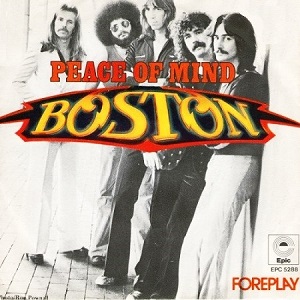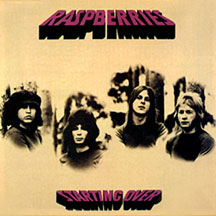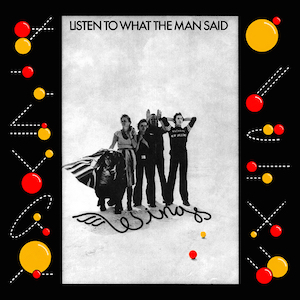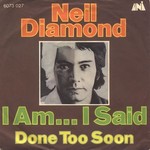
"Y.M.C.A." is a song by American disco group Village People. It was released in October 1978 as the only single from their third studio album, Cruisin' (1978). The song was written by Jacques Morali and singer Victor Willis. A medley with "Hot Cop" reached No. 2 on Billboard's Dance Music/Club Play Singles chart, while the song reached No. 2 on the Billboard Hot 100 charts in early 1979, placing behind both "Le Freak" by Chic and "Da Ya Think I'm Sexy?" by Rod Stewart. Outside the US, "Y.M.C.A." reached No. 1 in the UK around the same time, becoming the group's biggest hit. It has sold 12 million copies worldwide.

Desperado is the second studio album by the American band the Eagles. It was released on April 17, 1973, by Asylum Records. The album was produced by Glyn Johns and was recorded at Island Studios in London, England. The songs on Desperado are based on the themes of the Old West. The band members are featured on the album's cover dressed like an outlaw gang; Desperado remains the only Eagles album where the band members appear on the front cover.
Leroy Frank Van Dyke is an American country music and honky-tonk singer and guitarist, best known for his hits "The Auctioneer" (1956) and "Walk on By" (1961).

"Peace of Mind" is a song by American rock band Boston, written by Tom Scholz, the band's founder, lead guitarist and primary songwriter. It released on their 1976 self-titled debut, and released again the next year as the third and final single from the album. It peaked at number 38 on the U.S. Billboard Hot 100 in 1977, as well as number 33 on the Cash Box Top 100. It received substantial radio airplay, both upon the initial release of the Boston album and subsequently, and has been described as a "rock-radio staple".

"Macho Man" is a song by American disco group Village People, released as the second single and title song of their eponymous album (1978). The song entered the Billboard Hot 100 on June 24, 1978 before picking up more airplay that August. It became the Village People's first charting hit in the United States, peaking on the Hot 100 at number 25 on the week of September 2.

Starting Over is the fourth and final studio album by the 1970s power pop band Raspberries. It peaked at #143 on the Billboard pop album chart in 1974. The LP generated the #18 Billboard pop single "Overnight Sensation ," while a second single, "Cruisin' Music", did not chart. This was the first album by the Raspberries to feature songs with profanity. Those songs were “Starting Over”, which featured the word "fucking" once, and the song “Party’s Over”, which featured the word "shit" twice.

"Go West" is a song by American disco group Village People, released in June 1979 as the second single from their fourth studio album of the same name (1979). The song was written by Jacques Morali, Henri Belolo and lead singer Victor Willis. It was successful in the disco scene during the late 1970s. "Go West" found further success when it was covered in 1993 by English synth-pop duo Pet Shop Boys.

Macho Man is the second studio album by Village People, released on February 27, 1978. The album gained success due to its hit singles, "Macho Man" and "Key West". Rolling Stone said of the album, "It seems certain to become the first out-and-out disco album without John Travolta on its cover ever to be certified platinum".

"Listen to What the Man Said" is a hit single from Wings' 1975 album Venus and Mars. The song featured new member Joe English on drums, with guest musicians Dave Mason on guitar and Tom Scott on soprano saxophone. It was a number 1 single on the Billboard Hot 100 in the US the week of July 19, 1975 and reached number 1 in Canada on the RPM National Top Singles Chart. It also reached number 6 in the UK, and reached the top ten in Norway and New Zealand and the top twenty in the Netherlands. The single was certified Gold by the Recording Industry Association of America for sales of over one million copies.

"I Need a Man" is a song recorded by British pop music duo Eurythmics. It was written by band members Annie Lennox and David A. Stewart and produced by Stewart. Taken from their sixth album, Savage (1987), the song was released as the third single in the UK and the first single in the United States.
"I Am What I Am" is a song originally introduced in the Broadway musical La Cage aux Folles. The song is the finale number of the musical's first act, and performed by the character of Albin Mougeotte, first played by George Hearn. His version appears on the original cast album released in 1983. The song was composed by Jerry Herman.

"Hot Blooded" is a song by the British-American rock band Foreigner, from their second studio album Double Vision. It was released as a single in June 1978 and reached #3 on the Billboard Hot 100 chart that September. The single was also certified Platinum by the Recording Industry Association of America. It is also the theme song to the truTV scripted series Tacoma FD.

"Hold the Line" is a song by American rock band Toto from their 1978 eponymous debut studio album. Written by the band's keyboardist David Paich, the lead vocals on the song were performed by Bobby Kimball.

"San Francisco (You've Got Me)" is the debut single by the American disco group Village People. It was released in 1977 as the lead single from their self-titled debut studio album. The song reached number fifteen on the Australian Kent Music Report and peaked at number two on the U.S. Billboard Bubbling Under Hot 100 chart.

"Ride My See-Saw" is a 1968 single by the English progressive rock band the Moody Blues. It was written by the band's bassist John Lodge, and was first released on the Moody Blues' 1968 album In Search of the Lost Chord. It was the second of two singles from that album, the other being "Voices in the Sky".

"I Am... I Said" is a song written and recorded by Neil Diamond. Released as a single on March 15, 1971, it was quite successful, at first slowly climbing the charts, then more quickly rising to number 4 on the U.S. pop singles chart by May 1971. It fared similarly across the Atlantic, reaching number 4 on the UK pop singles chart as well.

Village People is an American disco group known for its on-stage costumes and suggestive lyrics in their music. The group was originally formed by French producers Jacques Morali, Henri Belolo and lead singer Victor Willis following the release of the debut album Village People, which targeted disco's large gay audience. The group's name refers to Manhattan's Greenwich Village, with its reputation as a gay neighborhood. The characters were a symbolic group of American masculinity and macho gay-fantasy personas. To date, Willis is the only original member still remaining with the group.

"Real Men" is a song by British singer-songwriter and musician Joe Jackson, which was released in 1982 as the lead single from his fifth studio album Night and Day. It was written by Jackson, and produced by Jackson and David Kershenbaum. The song became a hit only in the Dutch language area and Australia. In the Dutch Top 40 it reached the 15th position, and in the Flemish Radio 2 Top 30 it reached the 25th position. "Real Men" reached No. 89 in the UK and No. 6 in Australia. A music video was filmed to promote the single, directed by Steve Barron. The song was covered by Tori Amos on her 2001 album of gender-swapped covers, Strange Little Girls.

"Hot Cop" is a song by the American disco group Village People recorded for their third studio album Cruisin' (1978). It was written by Jacques Morali and Village People lead singer Victor Willis. It served as Willis' theme song with the Village People. Although not released as a single, it was a disco hit. A medley with "Y.M.C.A." reached number 2 on Billboard's Hot Disco Singles chart.
This is the discography of American disco group Village People.
















